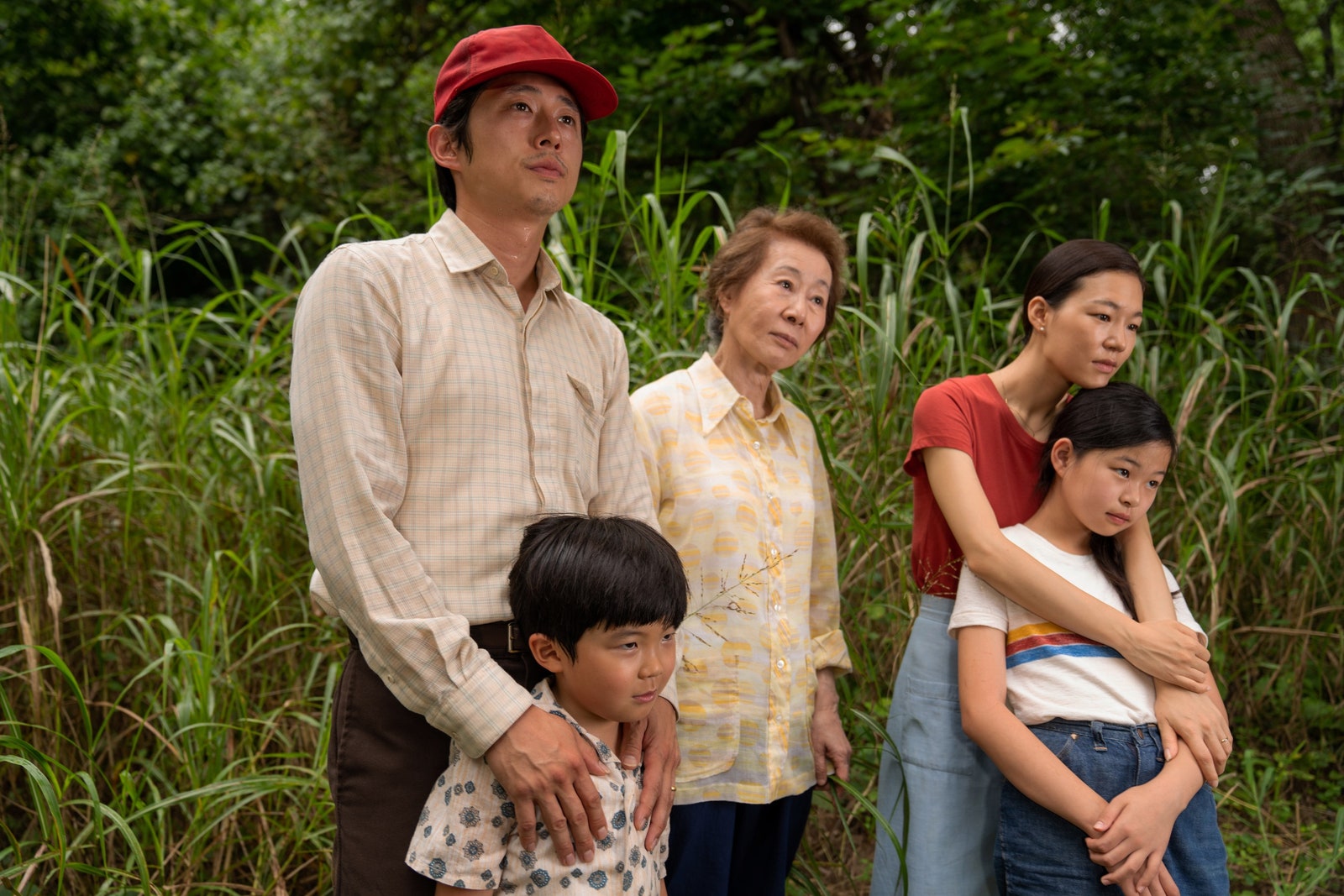The Golden Globe-nominated film is spot on.

You Need to See 'Minari,' a Peek at an Immigrant Experience That’s Surprisingly Universal
Here’s what I know about my dad’s journey to the United States: When he was six, he traveled from Hong Kong to San Francisco on a boat before taking a train to New York City, where he and my grandparents settled into a cramped apartment with a bleak view of the Long Island Expressway in Queens.
All the other details are MIA, like what it was like to go from speaking Cantonese to English, or how he became a naturalized citizen, or what it was like to grow up as a Chinese kid in Flushing in the 1960s. He’s not one to get nostalgic, and all the badgering in the world won’t pry it out of him. (I’ve tried.)
So when I watched Minari, now in theaters and streaming in A24's screening room, I felt like I got a little glimpse of what it might have been like for him and my nainai and yehyeh when they got to New York City. The film follows a family originally from South Korea—Jacob, his wife Monica, and their children David and Anne—as they pursue their American dream by starting a farm in Arkansas (technically, it’s Jacob’s dream), viewed largely through David’s eyes.
We see all the challenges of the immigrant experience, but what puts a spark in the plot is the arrival of Monica’s mother, Soonja. David is meeting her for the very first time, and he soon calls her out for not being a “real” grandma—she doesn’t bake cookies, she swears, she wears men’s underwear.
It’s a spot-on depiction of the disconnect between first-gen and second-gen immigrants, or those who immigrated and those born in the new country. My nainai never touched cookie dough in her life; she cooks wontons and only wontons, and collects lightly used napkins from the dinner table to hand out at the next meal. She once ordered frog legs at dim sum and danced them across the table. I, who grew up in upstate New York with an Italian-American grandma on my mom’s side, grew up keenly aware that this isn’t your typical American grandma stuff.
Speaking of frog legs, the movie also touches on the cultural comfort of food, from Jacob’s crops of Korean vegetables—not to mention the eponymous minari, which is Korean watercress—to the bags of anchovies and chili peppers that Soonja presents upon her arrival, making Monica cry at the sight. That’s even there as we see David, his sister, and eventually Soonja swapping herbal teas for Mountain Dew. It brings up the question: What does it mean to become American? Is it drinking your body weight in Mountain Dew? Or, maybe, is it breaking your back to make your dream happen, and not throwing in the towel when it all falls apart?
It’s not only immigrants who are on the outside. Minari also shows that you can be an outsider even if you’re from here, by way of a Pentecostal farmhand working for Jacob who gets jeered at by kids en route to church. And in that way, the film proves that it’s about more than the Korean-American experience, the Asian-American experience, or even the immigrant experience at large; rather, it’s about how outsiders can find home in each other—husband and wife, farmer and farmhand, grandmother and grandson.
And the best part? My dad liked it, too.
Deanna Pai is a writer in New York City. Follow her on Instagram @deannapai.
This story originally appeared on: Glamour - Author:Deanna Pai


























